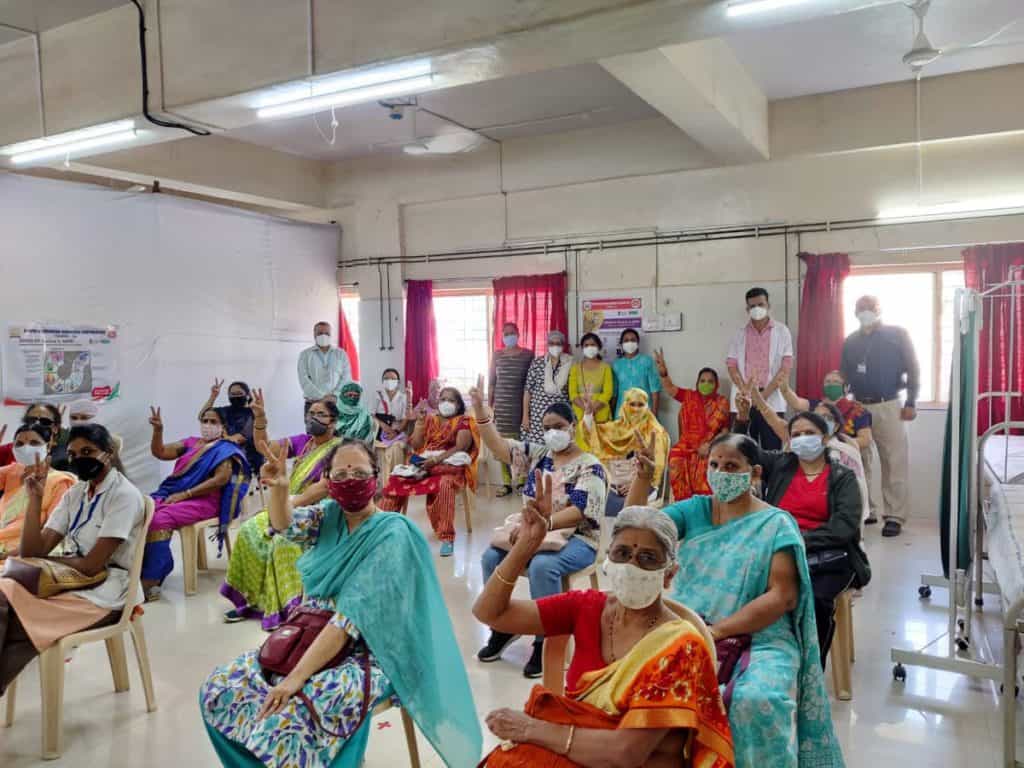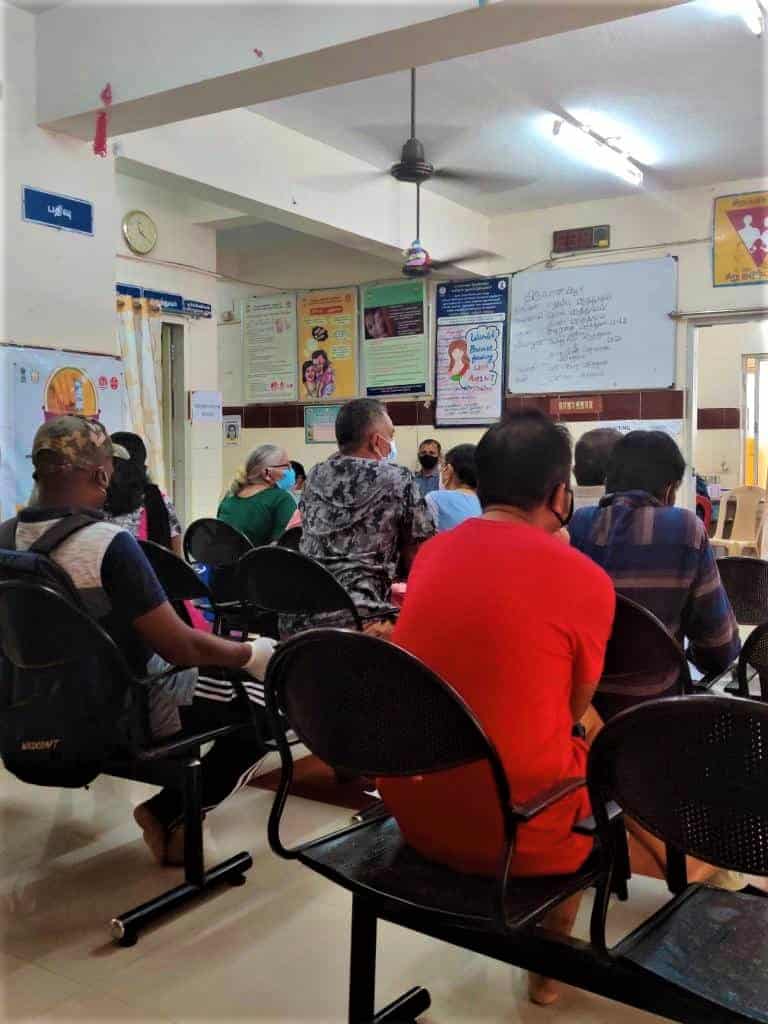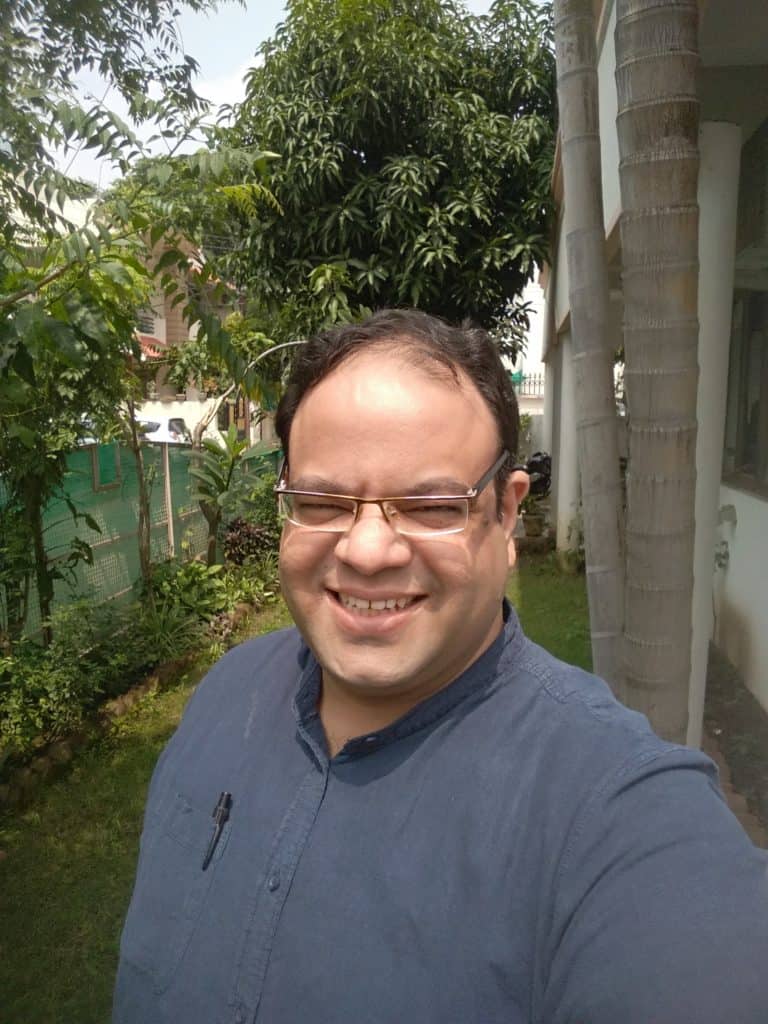The second, brutal wave of the pandemic in India has brought us face to face with tragedies and horrors that we probably never even encountered in the most fearsome of our nightmares. The intensity and surge in numbers is one thing, but what has left us most anguished and horrified is the unpreparedness of our governance, the dire straits of a neglected public health care system and the consequent stripping of dignity and rights of citizens — in life, illness and even death. And even as we live this dystopian reality, we are constantly battling another huge fight — the fight for information, evidence and clarity on things that could literally make the difference between life and death for ordinary citizens.
Most ordinary citizens today are grappling with the lack of authentic information and explanations on various facets of the disease, its treatment and most importantly, the current vaccination policy: Why was the second dose of the Covishield vaccine suddenly pushed back to 12 weeks and beyond? What happens if I cannot get my second dose of Covax in time? How much do we really know about the virus itself, its mutated strains and the efficacy of these vaccines?
The vacillations of the Centre and its mixed messaging and the absolute cacophony on social media have been least helpful and therefore, we take some of these troubling questions to one of the most trusted, non-partisan and knowledgeable figures in the space today, Dr Anant Bhan. Dr Bhan is a researcher in Global Health, Bioethics, and Health Policy, and is based in Bhopal.
In the first part of the conversation, he clears some of the doubts raised above and also talks of the possible merits of a door-to-door vaccination policy.
Edited excerpts below; scroll down to the end to catch the complete unabridged conversation on video:
Let us begin with one of the most basic questions on the minds of citizens today. The phasing between the two doses of the Covishield vaccine — how do you view the successive changes in policy regarding that? And what is the rationale or evidence for extending it to beyond 12 weeks? And what does this mean for those — predominantly frontline workers — who may have received their second doses at a much lesser gap?
This whole issue of the increase in the dosing gap for COVID shield is an interesting development given where we are right now in India. Obviously, there is a lot of interest in getting vaccinated among many people, especially now with the age relaxation kicking in, but there aren’t probably enough vaccines available. So, in part, I think this is certainly a pragmatic decision, because it helps save vaccines or reduce the number of doses which might be immediately required.
Now, the evidence behind it draws primarily from studies done especially in the UK, but also their real world utility and usage, again, in the United Kingdom. That’s primarily because Covishield is largely being used — either in its AstraZeneca form or as Covishield, which is a licensed version from the Serum Institute — in India and UK. Also, to some extent, but not in major part, in a few other countries.
The evidence from clinical studies which have been published shows that an increased dose gap of 12 weeks does enhance efficacy of the vaccine, but this information has been known for a while. In India, initially, the decision was taken to keep the dosing gap, relatively lesser (six to eight weeks) but now in light of the evidence from clinical studies and what they’ve seen from real world rollout in UK, the expert group decided that they wanted to enhance the dosing gap. However, what is not very clear is this gap of 12 to 16 weeks — whether it is grounded in any particular study, because around 12 weeks is what we’ve seen in the reported data. But it does seem a 12-16 week gap should be ok.
So, I am not very perturbed by this increase in the gap, if it helps us enhance the number of people who get their first doses. This is also the strategy followed by countries such as Canada, which focussed its efforts on “First dose Fast”, because we know that even with the first dose, there is a relatively high degree of efficacy that can help enhance the protection for a large number of our population.
Now, the challenge is that there are a significant number of people who have already received their doses much earlier (than at a 12-week gap) and they are concerned whether this means that they might not be protected, or if the vaccines are going to be less efficacious for them. I think they should not worry, because even with a lesser dosing gap, the efficacy would still be fairly good. In fact, for people who might have been at greater risk, such as the elderly or those with comorbidity, it’s good for them to have gotten the two doses already. Overall, I don’t think we should worry too much about this increase in dosing gap.
What is certainly important is for India to collect its own data and analyze such data, so that we can draw inferences from our own experiences, see how things are panning out, how many breakthrough infections we are seeing (that is, those who have already gotten vaccines but are still infected). Such analysis, I think, will help us, also because there have been concerns expressed around new variants and whether the vaccines will protect against them. So far, the evidence seems to say, yes, they do protect. But of course, data will help us to understand these things better.
Read more: ‘How do I get my shot?’ and other FAQs on COVID vaccination Phase 3
Also, we hear varying recommendations for people who have survived COVID, who may have just recovered. What does the science say about that at present?
A lot of the guidelines say four to eight weeks, for example, if you have gotten a dose and then you get COVID-19, then you should perhaps wait for four to eight weeks for your second dose. The WHO guidance is somewhere around six months, from what I remember. And I think the evidence does indicate that if you have been exposed to the virus, there is some degree of protective efficacy.
Having said that, a lot of people also have been reinfected after a few months, but it’s very likely that there is some degree of protection following an infection; now, how long that protection lasts is still being researched and it will also depend on what you were exposed to, variant differences, etc. For a short while,however, I think it’s certainly okay — so four to eight weeks seems fine, but up to six months is also a fair period for people to remain protected by virtue of their prior exposure.
Of course, there is no 100% guarantee of anything. So it’s extremely important for people to follow the precautions around mask usage, distancing to the extent possible and hygiene measures. And especially mask usage, I think there is certainly now enough evidence globally that good quality mask usage does reduce your risk of being infected. It’s as good as a vaccine or perhaps even more efficacious in some situations.
The new guidelines recently announced now suggest a 3-month gap after recovery for vaccination.
Speaking of continuing efficacy of the vaccine, shortage of vaccines in the country is a stark reality. And it does seem increasingly possible that many who are due for their second doses of any vaccine, especially frontline workers or senior citizens who received them in the early days of the drive, may not receive them as scheduled. What happens if the recommended period between the two doses lapses? Does it diminish protection?
I think that’s a valid concern to have, one is hopeful that vaccine scarcity as we’re seeing now, will be addressed. I think the government has announced some intent to prioritize the second doses, especially for those who might be at higher risk. That said, even if you miss your second dose because there is no vaccine available when you land up for your scheduled appointment, I don’t think people should get too worried. Protection does last for longer.

What we know from clinical studies and for real world effectiveness is that those who have received the shot remain protected for a longer period, especially if they are taking precautions. They should keep trying, but they shouldn’t get too worried about the fact that they were not able to receive it immediately at 12 weeks. A couple of extra weeks, or maybe even a couple of extra months, will be okay.
I think where we might start seeing some waning of protection is beyond a much larger gap, for example if you’ve already finished a year after your first dose. Then there may be cause for some worry and you might have to repeat the cycle. But for most people, it should be okay as long as they receive it in the near future beyond their scheduled second dose. So they don’t need to worry about it too much.
Several fully-vaccinated individuals have reported positive results even after the second shot. Sometimes, days beyond the second shot. Such cases are also leading to vaccine hesitancy among some individuals. What could explain this lapse in vaccine protection?
So, one thing to remember is that none of our vaccines are 100% efficacious, which means that it’s not going to protect everyone from disease. Even if you get the vaccine, some people, especially if they’re exposed to infection, could potentially get infected with COVID. But that having been said, those who are getting vaccinated have a much higher likelihood of just having mild disease and not progressing to a severe stage or dying from the disease. There is now again a lot of evidence towards this from multiple studies done across the world.
So for those who are hesitating or who are concerned after hearing of others who may have gotten the infection even after being vaccinated, even after some gap after the second dose, they need to remember that the vaccines have an efficacy level somewhere in the range of 70%- 80%. But what is more important is that they are protected against the severe form of disease and hence, that by itself is a good enough reason to go ahead and get vaccinated.
One has to also remember that by following the precautions (even after the second dose), which we all know by heart, by now, they can reduce the chance of any infection. So ensure that you keep using masks, ensure that unless really required, you don’t go out of the house. That will reduce the chances of being exposed to the virus and getting the infection.
We are also seeing alarming photos of overcrowded vaccination centres, hearing reports of people queuing up for hours only to find stocks depleted by the time their turn comes. Given the current stocks that states have, and given the infrastructural constraints of our public healthcare institutions, how can this be prevented? What could be a safe strategy to administer vaccines?
You certainly don’t want overcrowding at any facility now, and especially not at the vaccine facility. You don’t want a situation where a lot of people wait in line for a long time and are then told that there are no shots available for them. So I think we certainly need to bring in efficiency to that.
There were appointment slots designed to try to prevent this and that could have been a way out. But then a lot of people thought that walk-in spots might be available, because they were in fact available in the early days of the drive. So that also led to confusion and crowds.

You could stick strictly to the appointment system. But that again might be biased against folks who don’t have access to technology. You would need to factor in ways for those who might not have a laptop or a desktop or a smartphone to be able to get a booking done and here’s where the role of frontline health workers becomes important. Local link workers, ASHA workers, ANMs, local community volunteers can help set up an appointment.
However, if people land up with an appointment and then don’t get a vaccine, that will lessen trust in the system. It is important to ensure that appointments are linked to availability of vaccines and are efficiently communicated at the same time.
Read more: Vaccination is tough, even for the digitally savvy
I think most people are now aware of a shortage of vaccines. People would be more accepting of that, if governments had a clear roadmap and communicated that. For example, if they tell the people that we are taking it slow because we have a shortage. We are working on trying to expand our basket of vaccines as well as the number of vaccines which are available, but in the short term, we want to prioritize, say, the second dose for those who are due. Or that, we’re going to only have limited batches available, and this is how you can register for those if you’re eligible. I think if the plan can be communicated with that kind of clarity, people might be more patient and wait for a bit longer (thus preempting crowds at the centres).
I think there is a lot of rush for vaccination because of the recent enhanced number of cases that we saw, especially during the March-April period. People understandably got very worried when they saw the kind of visuals which were shown about people struggling for oxygen etc. and that might have led to increased demand for vaccines. But we should also leverage that to keep the momentum going to enhance our coverage across the board.
Do you think then that a door-to-door vaccination strategy could work now to mitigate some of these issues, or at any point in the future? Is that even advisable?
It’s certainly an option that should be considered very seriously. Because it can help enhance outreach and the number of people taking the vaccine. There is a concern that not everyone wants to, or is able to, come to a facility and I think it’s a fair concern. All of our national immunisation programs have worked well, by virtue of having outreach happening through community-based vaccination or health professionals/workers going to frontline areas and administering vaccines.
The challenge in this case, I guess, is how to ensure the required waiting period of around at least 30 minutes for any immediate reactions post vaccination, and to have systems in place to manage these if they happen. Now, I think you can still do that, perhaps even at a community level, through special kinds of outreach; for example, have vaccination camps at an Anganwadi center or at a local school, and then ensure that people are being followed up for the requisite period to ensure that there is no immediate post-vaccine reaction. Of course, you would also need to educate them about what to look out for, how to report, and then ensure that you have backup referral mechanisms available if someone has a serious reaction.
So, it will require some planning, but I think it could certainly help in enhancing our coverage of the vaccine. These could also solve to some extent the issues created by unequal access to technology, as we discussed earlier.
Read Part 2 of the interview: “Need a national registry on Black Fungus” – Dr Anant Bhan
Watch the entire conversation below:
